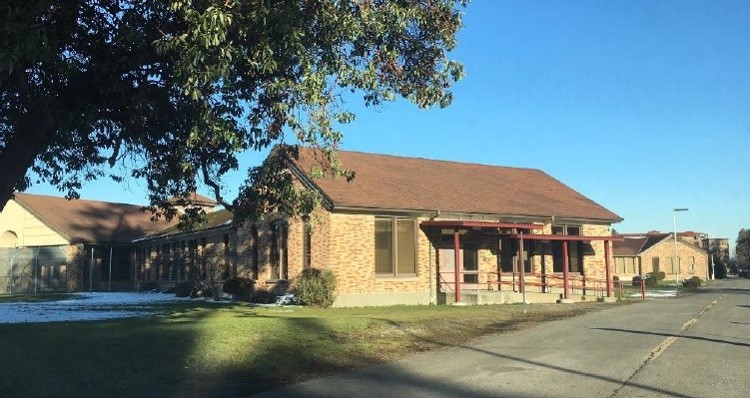Steilacoom Unit is located on the campus of Western State Hospital. Steilacoom Unit provides competency restoration treatment to residents in a 30-bed residential treatment facility in Lakewood. The program is one of three programs offering competency restoration services in the Behavioral Health Administration, along with Eastern State Hospital and Western State Hospital.

Our residents
Residents enter into treatment if they are in a court proceeding, and a judge determines they do not understand their charges, the court process, and/or that they lack the ability to assist in their defense because of a mental health condition. Residents typically receive orders for 29 to 90 days of treatment (depending on the type of charge), which can be extended if approved by the court. If residents’ competency is restored, then they return to jail to continue with their court proceedings. If their competency cannot be restored, Steilacoom Unit staff works with the residents to transition them to a state hospital for civil commitment.
Our program
The Steilacoom Unit team uses the Breaking Barriers Competency Restoration curriculum to help residents to become competent. These classes address areas such as courtroom knowledge and understanding, symptom management, coping skills, and effective communication with attorneys.
There are two types of interventions typically associated with competency restoration: psychotropic medication and individual monitoring of their barriers to competency. Residents who are enrolled in competency restoration are evaluated by a credentialed provider who determines whether psychotropic medications may be beneficial and, if so, can prescribe and monitor medication. For individual sessions, residents meet with clinicians, social workers and a peer support specialist to address individual barriers to competency, transition planning, and wellness recovery action plans.
Competency restoration services respect the various facets of people’s lives and account for each resident’s experiences and needs. The resident is involved in planning their services, and the program strives to provide an atmosphere of hope that they can achieve mental wellness.
Competency Restoration Programs
The Department of Social and Health Services operates licensed residential treatment facilities where justice-involved people receive mental health services geared toward restoring competency to stand trial. People ordered into competency restoration will be assessed through a centralized screening process to determine which RTF best matches the person’s unique needs for mental health treatment and recovery.
To learn more, visit the Office of Forensic Mental Health Services’ Competency Restoration Programs page.
Frequently Asked Questions (FAQs)
Q. What is a competency evaluation?
A. The state of Washington employs psychologists who specialize in forensic evaluations, such as competency evaluations as stipulated in RCW 10.77. The evaluation typically involves a review of the defendant’s mental health history, education and work history. The defendant participates in a clinical interview with a psychologist. Occasionally, psychological testing is conducted. Evaluations can be done at a state hospital, in a jail setting, or at an attorney’s office, depending upon the defendant’s psychological condition and custody status.
Q. Why is my son/daughter/client being evaluated for competency?
A. A defendant is evaluated for competency when concerns have been raised with the court, typically either by defense counsel or prosecution, that the defendant is not capable of properly participating in their own defense due to mental health symptoms.
Q. What does it mean to be found “not competent?”
A. Under RCW 10.77, the law which governs this process, a person can be found not competent on the basis of being diagnosed with a mental disease or defect which prevents them from understanding court proceedings and/or being able to rationally assist in his/her own defense.
Q. What is competency restoration?
A. When a defendant is found not competent, the state is ordered to provide services to bring them back to competency. Restoration services typically involve admission to a forensic services unit, where other people are participating in the program. These services typically include educational, therapeutic and recreational activities. The services also may include administration of psychotropic medications. DSHS provides competency restoration services at Western State Hospital and Eastern State Hospital.
Q. How long is competency restoration treatment?
A. The court order typically specifies a number of days that a person will participate in treatment. If a person exhibits substantial improvements in psychiatric and psychological functioning, they can be re-evaluated for competency to stand trial. If found competent to stand trial, they can be returned to jail and continue with their case. If, after the first period or treatment, the court continues to find the person incompetent, the court can order another treatment period. There are cases when a person is found not to be restorable in a “reasonable period” (typically longer than six months). If this occurs, charges may be temporarily dismissed, and the person may be admitted to a civil psychiatric unit at a hospital for continued treatment. If this person is later found competent to stand trial, the prosecuting attorney can re-open the case and court proceedings can continue. This process is known as dismissed without prejudice.
Q. What happens when someone is found competent?
A. When a defendant is found competent, they are returned to the jail. A hearing will be set to formalize the court’s opinion on whether the person is competent and ready to participate in adjudication.
Q. What if the attorney doesn’t agree with the court’s opinion that the individual is competent?
A. The defense counsel has the right to hold a formal hearing in which the defense can bring an expert to testify that the person is not competent and the state will bring its expert witness to testify that the person is competent. The defendant has the right to testify in this hearing. After the judge hears testimony and arguments, a decision will be made to determine the defendant’s competency.
